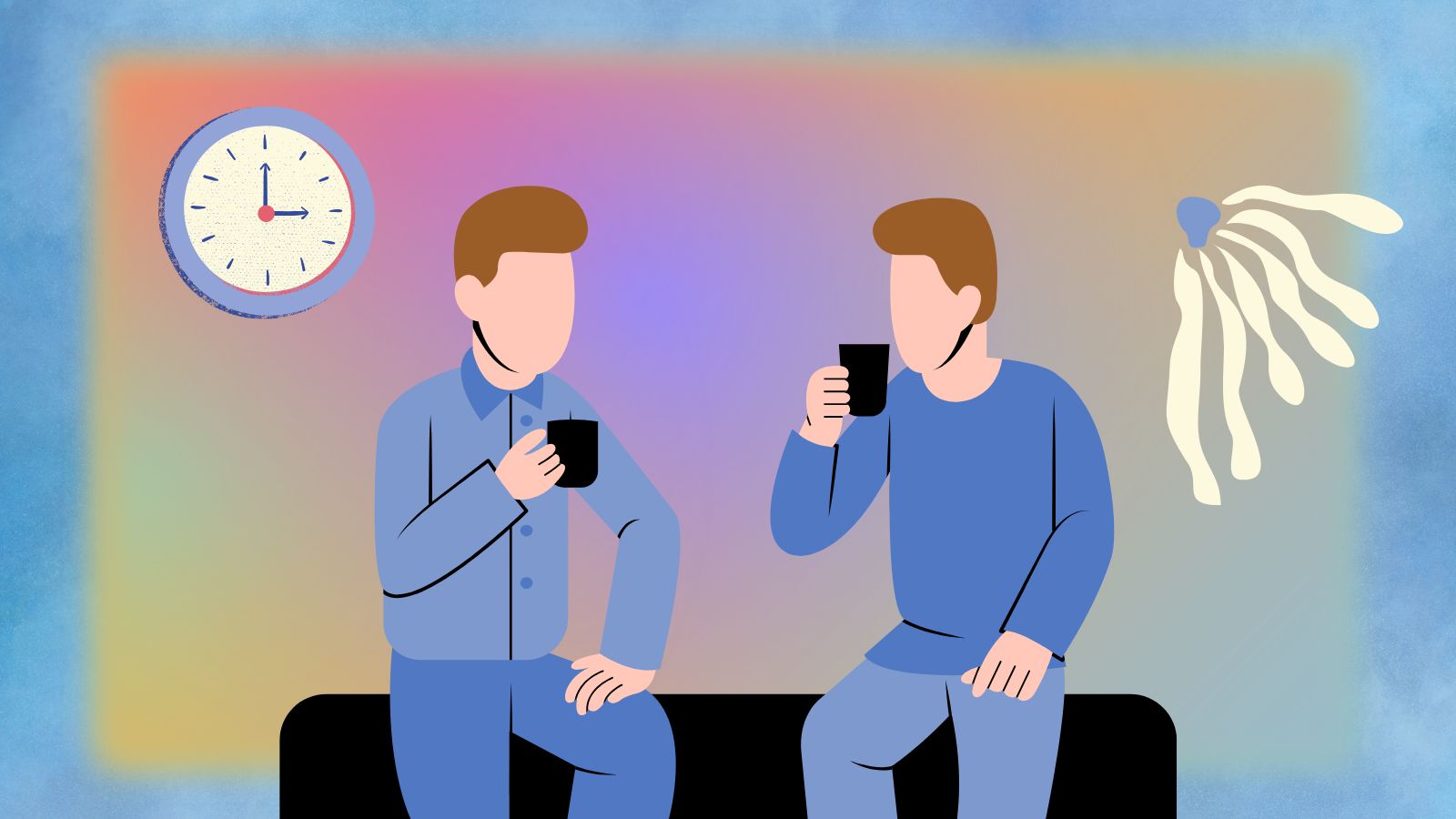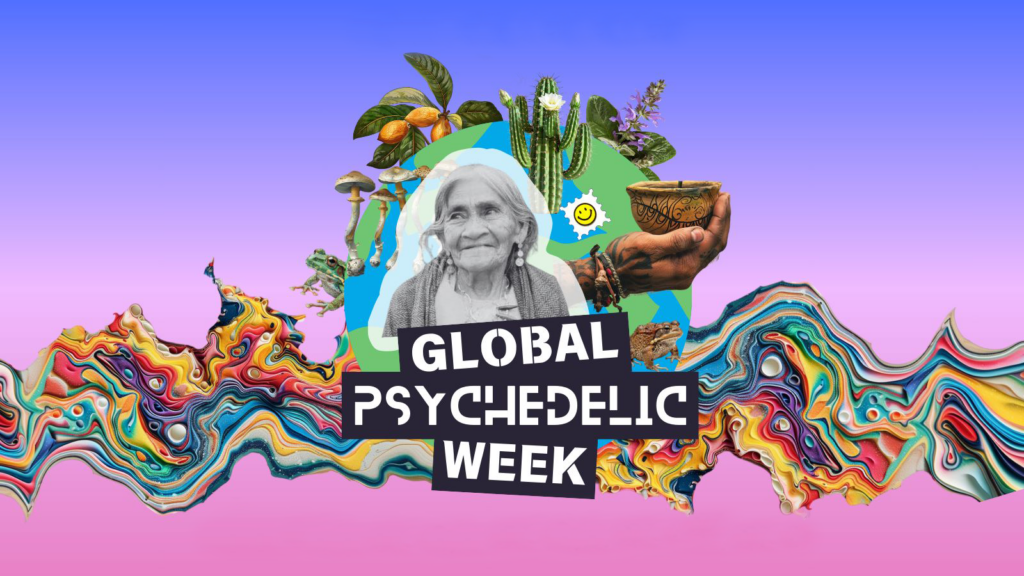A Chance Encounter That Changed Everything
I still can’t believe how I first met Rick Doblin.
It was February 2023, and I was nervously navigating my first psychedelic conference in Miami. Psychedelics had transformed my life, but stepping into this established community felt like entering a world where I was the outsider. The day before the conference began, I struck up a conversation with a woman who carried herself with confidence and warmth. We clicked immediately, and as we spoke, I discovered she was Charlene Justice—Rick Doblin’s executive assistant.
That night at the hotel bar, Charlene approached me with a casual question that would change everything.
“Hey, do you want to meet Rick?”
She asked it so effortlessly, as if introducing me to any regular person—not the founder of MAPS, the man who had spent decades legitimizing psychedelic research against all odds.
Moments later, I was face-to-face with Rick himself. What struck me wasn’t just his warmth but his genuine curiosity and enthusiasm for what we were doing. Throughout the conference, he visited our booth, engaged deeply with our mission, and encouraged us with an authenticity that surprised me.
Our paths crossed again at Psychedelic Science 2023. Rick spotted me from across the exhibition hall and made a beeline for our booth. “Oh, I was wearing your shirt the other day,” he mentioned offhandedly. That moment floored me—not just because someone of his stature supported our work, but because it revealed something fundamental about Rick: beneath the public figure is someone who genuinely invests in the community he’s built.
Since then, he’s become a true ally. He’s sent selfies wearing Cultivating Wisdom gear, offered guidance during difficult moments, and demonstrated time and again that his public persona isn’t performative—he’s the real deal.
So when I finally had the opportunity to sit down for an extended conversation with him on Love You Wealth, it wasn’t just another podcast episode. It felt like the completion of a circle that began that night in Miami.
The Hardest Year of His Life
When asked about the recent challenges with MAPS and the FDA’s rejection of MDMA-assisted therapy, Rick didn’t sugarcoat it.
“It’s been the hardest year of my life,” he admitted. This from a man who has battled cancer.
That statement hit hard. For a man who has fought uphill battles his entire career, for this to be his hardest year spoke volumes. The struggle, he explained, wasn’t just the FDA rejection—it was seeing MAPS shift under the weight of for-profit interests. What started as a mission-driven organization had, out of necessity, invited investors into the fold. Suddenly, the incentive structure changed. The culture shifted from public benefit to financial returns.
Rick saw it happening. He tried to prevent it. But he admitted that, for a time, he felt powerless to stop it.

Psychedelics and Parenting: A Radical Approach
One of the most personal revelations in our conversation was how psychedelics shaped Rick as a father.
“My absolute favorite part of parenting was smoking marijuana and reading bedtime stories,” he said with a smile.
For some, that might sound controversial, but for Rick, cannabis transformed the mundane into the magical. He shared how his children associated the smell of marijuana with warmth, love, and storytime.
More radically, when each of his children turned 13, he and his wife made them an offer: if they wanted to try MDMA or cannabis, they could do so with their parents in a safe, intentional setting.
The result? They all declined.
Rick never expected this to be the best anti-drug strategy he could have imagined. By removing the taboo, he removed the temptation. His children had grown up in an environment where psychedelics weren’t hidden but openly discussed with honesty, science, and harm reduction.
The Battle for Psychedelic Legitimacy
Rick is deeply aware that he stands at the center of a seesaw—one side dominated by corporate interests, patents, and FDA approval, the other rooted in grassroots activism and indigenous traditions. Both are necessary for progress, yet the balance is precarious.
“We need to demonstrate that decisions are based on the data,” he emphasized, “not just on sympathetic politicians who don’t care about the data.”
He worries about the growing politicization of psychedelics. Figures like RFK Jr. and Rick Perry have championed the movement, but Rick insists that the science—not politics—must lead the way. He remains steadfast in his belief that psychedelics should be a fundamental human right, accessible to all, not just through the medical model.
Lessons from Ibogaine: Confronting Self-Doubt
One of the most profound moments of our conversation came when Rick shared a deeply personal psychedelic experience.
In 1985, he took Ibogaine and spent 10–12 hours vomiting. It was one of the most grueling experiences of his life, but the lesson it taught him changed everything.
“I realized I had to separate self-criticism from self-hatred,” he explained. “I was so punitive toward myself. I saw this negative pattern, and it just made me sick—literally.”
That journey allowed him to turn his inner critic into an ally rather than a tormentor. It’s a lesson that has guided him ever since, especially in moments of failure—like the recent setbacks at MAPS.

Bridging the Divide: The Future of Psychedelics
As we neared the end of our conversation, Rick’s message became clear.
“We need to listen to those who think differently than us. We need to be the bridge.”
Psychedelic Science 2025 will be a major step in that direction, bringing together researchers, policymakers, and the psychedelic-curious. But Rick knows that won’t be enough. He believes the best way to reach new audiences is through mainstream media—integrating psychedelics into TV, film, and pop culture the way the designated driver campaign reshaped attitudes toward drinking and driving.
He also believes we must go where the suffering is. People who are merely curious about psychedelics might not act. But those struggling—whether with PTSD, depression, or addiction—are the ones who need these medicines most. The key is making sure they find the right information, the right education, and the right support.














